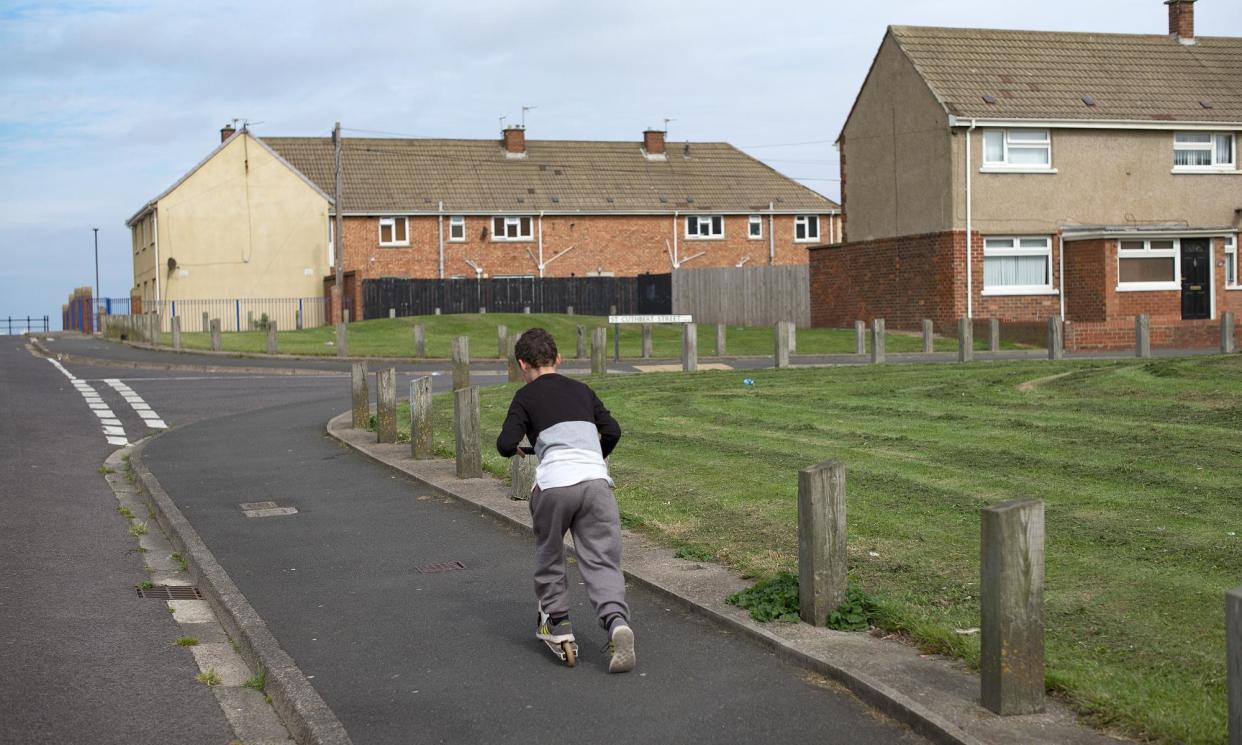Call for abolition of UK benefit cap as latest figures released

Charities have called on the government to abolish the benefit cap after the latest official figures showed 123,000 households containing an estimated 302,000 children were subject to it, trapping them in poor housing and extreme poverty.
Campaigners said increasing numbers of households were being made homeless and were suffering hardship as a result of the benefit cap, with single parents, female survivors of domestic abuse and children disproportionately affected.
There was a 61% increase in the number of capped households in the three months to May, the statistics show – a dramatic rise attributed to the previous government’s decision not to uprate the benefit cap in line with inflation.
“If the government is serious about tackling child poverty, it must take immediate action. The benefit cap must be scrapped so families can move on from damaging temporary accommodation into a settled home,” said Polly Neate, chief executive of Shelter.
The cap puts a limit on the amount of benefit income households can receive if they are jobless or earning low amounts. Introduced by the coalition government in 2013, it was intended as a stick to force claimants to get work, to work more or to move to cheaper housing.
However, evaluations have found it has failed to achieve any of its aims and, rather than incentivising claimants to change their employment behaviours, instead makes it harder for them to exit poverty and poor housing.
Research published earlier this year found benefit-capped families were living on as little as £4 for each person a day after rent and were often living in overcrowded, rat-infested and damp homes that they had little chance of escaping.
The benefit cap particularly affects domestic abuse victims living in refuges who, as a result, struggle to afford to move into private rented accommodation. With some refuges now limiting stays to six months, survivors are forced to register as homeless and transfer to insecure temporary housing, including moving into hostels and hotels.
There was a 24% increase in the number of homeless households living in temporary accommodation due to domestic abuse in 2022-23. A record 117,000 households were in temporary housing in England earlier this year.
Sophie Francis-Cansfield, the head of policy at Women’s Aid, said: “The sad reality is the cost of living crisis, combined with a private rental crisis and inadequate state support, is forcing many survivors to make the impossible choice between staying with an abuser and affording to live or leaving and facing financial hardship and homelessness.”
She added: “We must see an end to the benefit cap, so that no woman has to make the impossible decision between living in safety and affording to live.”
Current benefit cap limits, which were last increased in April 2023, are £22,020 (£14,753 for single adults with no children) and £25,323 (£16,967 for single adults with no children) in Greater London, regardless of household need.
High private sector rents and housing scarcity means it is almost impossible for benefit-capped households across vast swaths of England, Wales and Scotland to afford a home in their local or neighbouring areas.
Even more strikingly, in 78 council areas – mainly in the south-east of England – even social housing, the most affordable form of housing where rents are typically half the market rate, is beyond the means of capped households.
The benefit cap is often wrongly confused with the two-child limit, which removes universal credit support for a family’s third or any subsequent children born after April 2017, and which has also been at the centre of political controversy. The cost of abolishing it has been put at £300-500m.
A government spokesperson said: “This is another example of the dire inheritance this government faces – too many people are trapped on benefits. We are taking bold action to support people into work through reforming jobcentres and giving local areas the power they need to tackle economic inactivity, which will boost their finances and reduce the likelihood of being impacted by the cap.”


